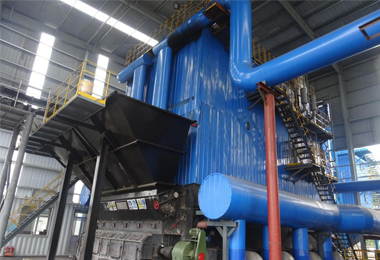
Avg . 05, 2024 12:56 Back to list
Troubleshooting a Steam Boiler That Won't Start and Ensuring Proper Operation Tips
Troubleshooting a Steam Boiler Not Turning On
Steam boilers are vital components of many heating systems, providing warmth and hot water to residential and commercial buildings. However, there are times when a steam boiler may not turn on, resulting in discomfort and potential issues with heating systems. This article outlines common reasons your steam boiler may be failing to start, as well as some troubleshooting steps to resolve the issue.
1. Power Supply Issues
One of the most common reasons for a steam boiler not turning on is related to its power supply. If the boiler is not plugged in or if there is a tripped circuit breaker, it will not operate. Begin by checking the power source; ensure that the boiler is connected to the electrical outlet and that the breaker is in the “on” position. If there are any blown fuses or tripped breakers, replace or reset them, and try starting the boiler again.
The thermostat is a crucial component that regulates the temperature setting for the building. If the thermostat is malfunctioning or incorrectly set, it may prevent the boiler from turning on. Verify that the thermostat is set to a temperature that requires heating; sometimes, simply adjusting the setting can prompt the boiler to activate. Additionally, inspect the thermostat for any signs of damage or wear; if necessary, consider replacing it.
3. Low Water Levels
Steam boilers operate on water; if the water level is too low, the boiler will not ignite. Most boilers have a water level gauge that indicates the current level of water. Check this gauge if the water level is low, fill the boiler with water according to the manufacturer’s instructions and try turning it on again. Remember to always ensure the boiler is cool before attempting to add water.
steam boiler not turning on

4. Pressure Issues
A steam boiler also depends on achieving the right pressure to operate effectively. If the pressure is too low, the boiler may not ignite. Look at the pressure gauge; if it reads below the recommended levels (usually noted in the boiler’s manual), you may need to increase the pressure. However, if the pressure is too high, this could indicate a malfunctioning pressure relief valve or another issue that requires immediate attention from a professional.
5. Safety Features Activation
Most modern boilers come equipped with numerous safety features designed to prevent accidents. These features can include overheat protection and low-water cut-offs. If any of these safety systems are triggered, the boiler will not operate. Therefore, inspect all safety controls to ensure they are in working order and reset any that may have tripped.
6. Ignition Problems
If the boiler is powered, the thermostat is set correctly, and water levels are adequate, yet the boiler still fails to start, the ignition system may be faulty. This could be due to a broken pilot light, a malfunctioning ignition spark, or other issues within the ignition system. Diagnosing ignition problems can be complicated and is best left to a certified technician.
Conclusion
While a steam boiler not turning on can be a frustrating experience, many issues can be resolved with basic troubleshooting. Always ensure the boiler is powered, check the thermostat settings, monitor water levels, and ensure safety features are functioning. For problems that appear complicated or remain unresolved, it is advisable to contact a professional technician. Regular maintenance can also prevent many issues, leading to a more efficient and reliable heating system.
-
High-Efficiency Commercial Oil Fired Steam Boiler for Industry
NewsJul.30,2025
-
High-Efficiency Biomass Fired Thermal Oil Boiler Solutions
NewsJul.30,2025
-
High Efficiency Gas Fired Thermal Oil Boiler for Industrial Heating
NewsJul.29,2025
-
High-Efficiency Gas Fired Hot Water Boiler for Sale – Reliable & Affordable
NewsJul.29,2025
-
High Efficiency Biomass Fired Hot Water Boiler for Industrial and Commercial Use
NewsJul.29,2025
-
High-Efficiency Biomass Fired Hot Water Boiler for Industrial Use
NewsJul.28,2025
Related PRODUCTS






















